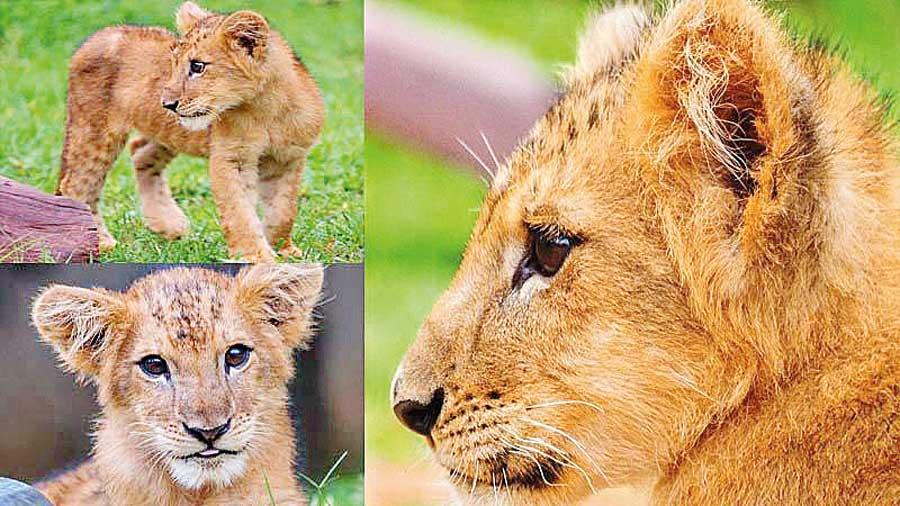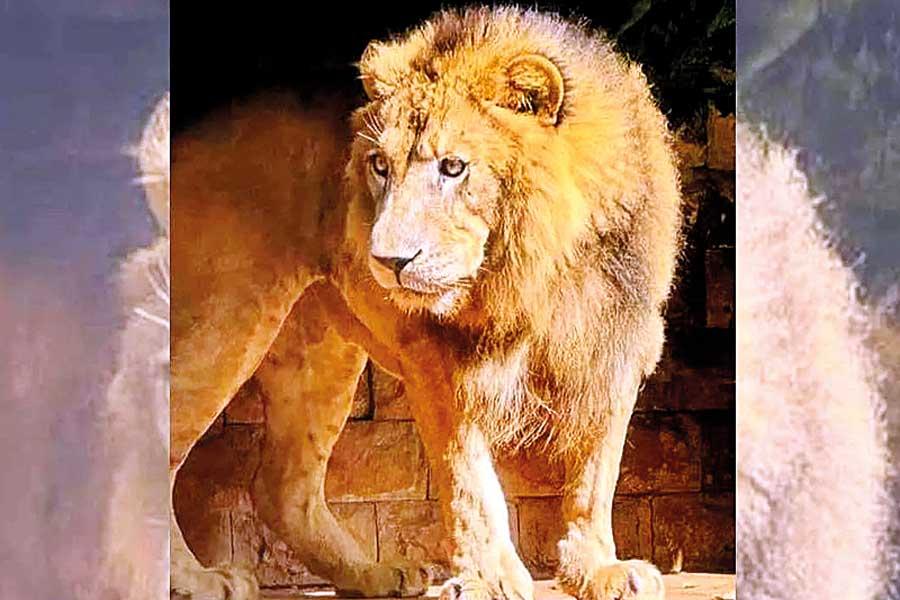22 Mar 2023 - {{hitsCtrl.values.hits}}
Inside sources allege the animals are systematically taken out to make the park nonviable, and tarnish its popularity

Dora, the adorable African lion cub
The male lion named Keshara at the Ridiyagama Safari Park died due to pneumonia, issues with its heart, and a prolonged period of depression, 
officials said.
Keshara was born in October 2017. His mother lioness died soon after giving birth to Keshara, due to an illness. Later, Keshara was raised under the care of the workers and a veterinary team.
In an unexpected turn of events at the Ridiyagama Safari Park, the five and a half year old lion died last week. Keshara’s postmortem examination revealed that the cause of death was due to issues with its lungs and heart.
Making matters worse, the Park’s most loved African lion cub Dora has taken ill, after a suspected case of poisoning reported last September, sources claim.
Park sources allege that certain supervisors even abuse animals in the park, while engaging in illegal activities, such as charging fees from visitors.
The Daily Mirror investigative team visited the Ridiyagama Safari Park on several occasions to report on the alleged misdeeds on several occasions.
According to the lions’ caretakers, they had put in a lot of effort to raise the animals. It was believed that both Keshara and Dora were suffering from depression. Keshara as it’s mother had died while it was a cub, and Dora, because its mother had rejected her. While the caretakers did their best to provide both animals with the care they needed, the animals were far from their healthiest, it was revealed.
Dora, the adored lion cub meanwhile was suspected to have been poisoned late last year. According to medical reports, Dora’s kidneys were damaged, and he was suffering from renal failure. Dora who was in critical condition was saved due to the prompt action by veterinarians of the park.
Dora who was administered treatment as soon as it was taken to the veterinary clinic, and recovered soon, due to the diligent care of the team.
“It is suspected that Dora was poisoned. Perhaps it was an attempt to tarnish the name of the park,” one source said.
“When Dora was being treated, certain senior officials used to ask the team about when Dora would die. It was as if they predicted its death, when we were trying our best to save the animals life,” the official said.
As the animals in the safari park fall under the category of semi-captive, they need to be well taken care of. The animals are raised in the park as wild animals, but also as people-friendly animals. These animals are raised in such a way that they have the behaviour of wild animals rather than captive zoo animals.
“Dora was afraid of everything, even the scent of other animals, would scare her. So the Safari Park caretakers had to keep her under constant watch,” one worker said.
With the constant care Dora received, the animal soon began to respond to human care, forming a great bond with her small team.
“As with humans, animals also have depression. Most of the animals in the park were abandoned for many reasons, such as rejection by their parent animals, the loss of their parents since their birth, or even injuries,” a source said.
“Therefore, the Safari Park officers had to take care of the Park’s animals, even more than their own family members. Much of their time was dedicated to the animals”
Due to Dora’s suffering from severe depression, the veterinary team and other minor staffers had to increasse their effort to bring it back to its health.
“It’s as if they lived with Dora twenty four hours of the day” one team member said.
“At times the caretakers and the veterinarians had to stay with the animals in the cages, in order to bring the animals back to their normal mental state. With a lot of effort, Dora grew well into adulthood and became very close to the caretakers and the veterinary doctors.
According to the caregivers, the former Director General (DG) of the Zoological Department put in a lot of effort into introducing young animals to older animals, and allowing the mingling of animals within groups, in an effort to socialize them.
“However, we lost have our former DG and many of our good doctors now. Many of them were transferred. They said that the veterinarian which took care of them was transferred. We feel that most of the park animals who were very attched to their caretakers seem to be missing them,” a worker said.
However, according to the letter issued by the Department of National Zoological Gardens Director General K.T. Premakantha on March 7, the veterinarian concerned was transferred to the Head Office of the Department of Animal Production and Health, which is under the Agriculture Ministry, following orders of the Ministry Secretary.
According to the letter, the veterinarian had to accept the duty on March 9 and had requested to resign on March 8 after handing over his office articles to the Deputy Director General of the Ridiyagama Safari Park.
“The transfer of the veterinary doctor caused an increase in Keshara’s depression, as the doctor had a great connection to the animal. It used go in search of its younger companions. The caretakers claimed that the lion died due to the absence of its loved ones and the depression it caused,” an official said.
They claimed that the supervisors who oversee staffers and animal caretakers, used to be drunk all the time and mistreat the animals.
“They used to do various illegal things, such as accepting bribes from visitors. They used to operate three buses in the park and used to charge Rs. 100 each and share the income among them at the end of the day,” one source alleged.
The Daily Mirror investigative team requests the Minister in charge to take immediate action in controlling the situation for the sake of the animals and the future of the park.

Keshara, the caretakers claim died due to depression
10 Jan 2025 1 hours ago
10 Jan 2025 2 hours ago
10 Jan 2025 4 hours ago
10 Jan 2025 4 hours ago
10 Jan 2025 4 hours ago